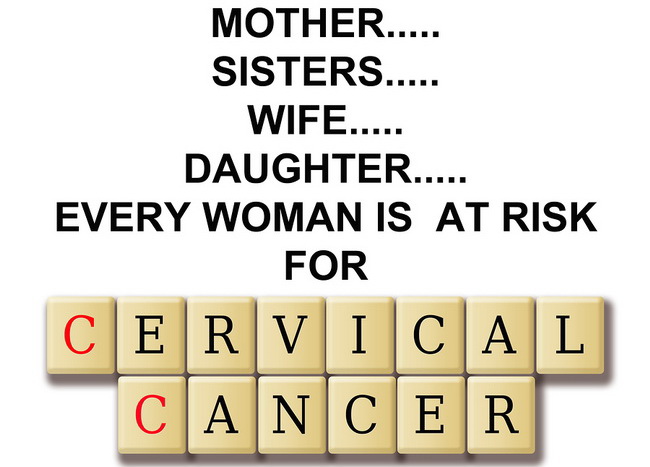- Make It Yourself Lavender Heart-Shaped Bath Bombs!
- 20 Things You Never Knew About “Down There”
- 12 Best Foods For Those Suffering From Arthritis Pain
- 12 Personal Hygiene Mistakes Almost Everyone Makes (Mom Never Told You About #4!)
- 15 Medicinal Plants And Herbs From The Cherokee People
- 12 Mind-Blowing Benefits Of Drinking Coconut Water During Pregnancy
- 12 Outstanding Winter Foods That Won’t Fatten You Up Like A Christmas Turkey
12 Warning Signs of Cervical Cancer Every Woman Should Know

Photo credit: bigstock.com
About 50 years ago, cervical cancer was one of the top death risks many women faced. Since the development of pap smears and the recognition of some common warning signs, the number of women who die from this silent killer has dropped significantly.
This doesn’t mean, however, that women need to be any less vigilant. We know much more about the risks and causes of cervical cancer than ever before, and when caught early, most women have complete recoveries. Still, the key phrase here is “catching it early.”
Knowing the 12 most common warning signs and knowing what you can do to lower your risk can give you a great advantage of this disease. Keep reading to learn what changes you can make to lower your risk and become familiar with the most common warning signs so that you can live a long and healthy life.
First, let’s take a look at the risk factors that can increase your chances of developing cervical cancer. Although you can’t change some of them, there are lifestyle choices you can make that will help immensely.
Cervical Cancer Risk Factors
- Weight – Women who are overweight or that eat a diet low in fruits and vegetables are known to have a much higher risk of developing cervical cancer. Although the exact reasons for this are not fully understood, scientists believe that poor eating habits rob the body of cancer fighting nutrients.
- HIV – Women with HIV have compromised immune systems, which leaves them more vulnerable to cervical cancer.
- Birth Control Pills – The hormones that are used in oral contraceptives give certain types of cancer a type of “breeding ground” that allows them to flourish. The longer you take oral contraceptives, the greater your risk. Studies show that women who take birth control pills double their risk every 5 years.
- HPV – There are hundreds of different types of the Human Papilloma Virus, but regardless of the type, scientists believe that this virus is a type of stepping stone for the development of certain types of cancer, including cervical cancer.
- Multiple Pregnancies – Scientists don’t understand why, but women who have had 3 or more full term pregnancies have a higher risk of developing this cancer.
- Genetics – Women with a family history of cervical cancer have a 3 times greater risk than women who don’t have this disease in their history.
- Chlamydia – Women who have had a chlamydia infection also have a greater risk of developing this type of cancer.
- Smoking – If you smoke, you double your chances of getting cervical cancer. Tobacco and the additives in cigarettes damage the DNA of the cervix. Smoking also affects the immune system.
- First Pregnancy at a Young Age – Women how had their first full term pregnancy before they were 17 are twice as likely to develop cervical cancer later in life than women who waited until they were at least 25 to get pregnant.
When cervical cancer is caught early, it is easily treatable, but you can lower your risks by doing the following:
- Get Regular Pap Tests – Women between the ages of 20-30 should be tested every 3 years. Women between the ages of 30 and 65 should be tested every 3 to 5 years. Women over 65 don’t need to be tested if they do not have high risk factors (such as genetics) and they have had 3 tests in a row with normal results.
- Watch Your Weight – Obese women have a higher risk, so keeping your weight down will help to lower your risk.
- Eat a Healthy Diet – Studies show that women who consume a mostly plant based diet have lower rates of all types of cancer, including cervical cancer.
- Don’t Smoke – If you smoke, stop. If you don’t smoke, don’t start.
- Prevent Sexually Transmitted Diseases – Many people carry the HPV virus and have no symptoms. Limit your sexual partners, known their history, and when in doubt, use condoms.
Continue to Page 2
































